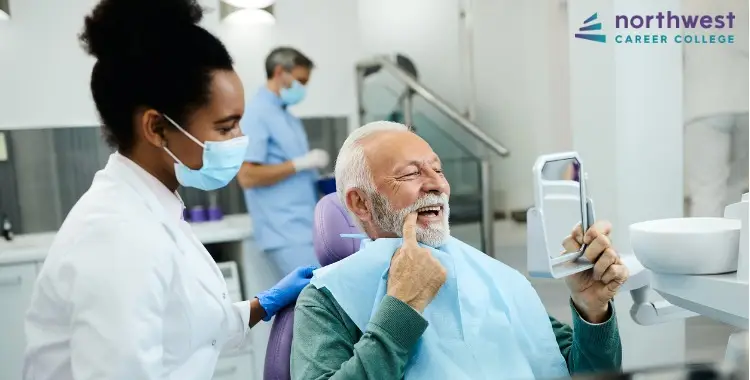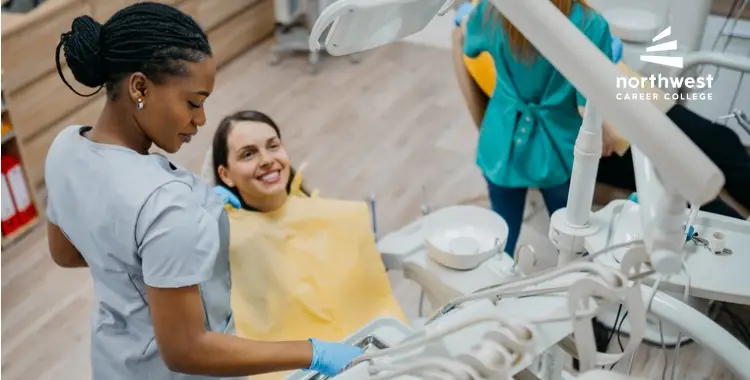Dental Assisting and Geriatric Dentistry: Special Considerations
- Dental Assistant
- April 30, 2024
- 2.5k views
- 3 min read

The role of a dental assistant is more than just a supporting one, particularly in providing specialized care to geriatric patients. Dental services designed to provide for the unique needs of senior citizens and the aging population are expected to grow rapidly over the coming two decades. This paper delves deeper into considerations and nuances dental assistants should take when working with geriatric patients.
Table of Contents
Understanding the Geriatric Patient
Geriatric patients aged 65 years and above usually require special dental care, as they typically have a wide range of dental problems, including periodontal disease, by the time they become senior citizens.
There are many reasons this can occur, and every patient’s profile is somewhat different, but it is often due to the decline of the immune system and increased plaque over time. If left untreated, periodontal disease may cause gums recession, bone loss, and, eventually, tooth loss. Therefore, it is crucial to provide appropriate interventions to prevent such complications.
For many geriatric patients, edentulism, or tooth loss, seems to emerge as a new challenge, but it often results from problems that have compounded after years of unresolved wear patterns on teeth, untreated dental states, or systemic health issues. The edentulous oral cavity can have far-reaching adverse effects on the functions of the mouth, nutritive aspects, and general quality of life, thus possibly demanding comprehensive dental care that meets the individual patient’s needs.
Older adults’ oral care needs are complex and require some form of dental care to meet their specific needs. Dental professionals must be careful in taking precautions for their oral health, drug interactions, and cognitive functions that are likely to interfere with the patient’s ability to understand and perform actions according to dental instructions.
Importance of Communication
Effective communication forms the core of delivering quality dental care services to geriatric patients. As such, the dental assistant ensures proper, clear communication between the patient and other health professionals attending to the geriatric patient.
Techniques and Equipment
The dental assistant in charge must be well-versed in specialized techniques and familiar with adaptive equipment that caters to the unique requirements of elderly patients. These techniques involve using ergonomic chairs and customized dental tools to give patients a better grip. This enhances the quality of care and ensures the patient’s safety and comfort.
Managing Dental Anxiety
Dental anxiety may be present in elderly patients, and if it is, it certainly hinders treatment. Dental assistants with experience in behavioral management could, therefore, facilitate overcoming fears in patients with appropriate behavioral approaches for an efficient and optimal outcome.
Oral Health Education and Maintenance
Preventive care and education have become two of the most emphasized dimensions in geriatric dentistry. Dental assistants must be crucial in educating patients regarding proper oral hygiene practices and visiting the dentist regularly. They also help implement individualized oral health regimens based on a patient’s needs and abilities.
Conclusion
To effectively assist elderly dental patients, a comprehensive approach is necessary. This includes involving specialized experts, clear communication, and prioritizing the patient’s needs.
Dental assistants are responsible for reporting the unique needs of their elderly/geriatric patients to the dentist so that the provider can select the most appropriate techniques and tools to improve their oral health and rely upon the dental assistant to educate or train their patients as needed.





